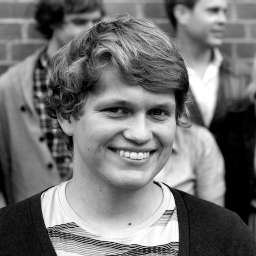Carl Nielsen’s operas are generally quite overlooked internationally, but are luckily performed regularly in his native Denmark. For his 150th anniversary, the Royal Danish Opera in Copenhagen premiered a new production by David Pountney of his first opera, Saul og David. While the singing and orchestral playing impressed, the production itself left a lot to be desired.
Saul og David first premiered at the Royal Theatre in Copenhagen in 1902, conducted by Nielsen himself. Its initial reception was mixed, and it received only a handful performances in Nielsen’s lifetime. The story is the Biblical story of about King Saul’s disobedience of the word of God and how David finally is anointed King of Israel. In many ways, Saul og David resembles an oratorio, with its many and long choral passages, but it is first and foremost a human drama, the contrast between the aggressive, ever more unstable Saul and the pure, innocent David, the old and the new.
In his new production, Pountney updates the action to an indeterminate present day Middle East, an area still ravaged by religious struggle. Not wanting to come down on either side of the Israel/Palestine conflict, he attempts a form of neutrality by shedding references to present day Israel and Palestine, instead turning the story into a parable of religious fundamentalism. The people, constantly following the goings-on in the royal palace on TV-screens, seem to do whatever their king asks of them, although who is king seems to hinge on the whims of the prophet Samuel. In Pountney’s Saul og David, more attention is given to Samuel: he fakes his own death in order to fake his resurrection by the Witch of Endor, and finally returns to take the throne from David and become King of Israel himself.
While there are certainly interesting parallels to be drawn between Middle Eastern religious struggles in Biblical times and now, Pountney’s attempt at shoehorning this Biblical story into a Israel/Palestine-like conflict came off as forced and overly simplistic. In this Middle East, everyone is a fundamentalist, blindly following the whims of whoever is their leader. Paired with some very confusing and misplaced exoticisms, most notably some very out-of-place celebratory dancing in Act II, the production seemed like it had nothing to say other than the overarching “fundamentalism is bad” message.
While the productions had its faults, the singing was generally very good. Johan Reuter’s conflicted Saul was the standout, his voice towering over the orchestra. His acting was nuanced, bringing vividly to life the king’s descent into madness, ranging from joy to deep despair, often changing his mood drastically at a moment’s notice. His suicide was nothing less than harrowing. Niels Jørgen Riis impressed as David, although he did take some time to warm up properly. The role of David is in equal parts lyrical and heroic, and Riis nicely managed to find the balance. His characterisation, however, was thoroughly unlikeable, and even though that is certainly a valid interpretation, it did strike me as odd to have a character whose only redeemable quality is that he’s a good singer.
Ann Petersen’s Michal, Saul’s Daughter and David’s eventual wife, was something of a let-down. Her characterisation was suitably girlish, although her costume looked like a misshapen reject from Disney’s Aladdin, but her voice was harsh and her diction barely present. Her voice warmed up eventually, and there were some beautiful softer moments. Susanne Resmark’s Witch of Endor at times bordered on caricature, but it was still impressively sung, with Resmark’s impressive lower register being especially prominent. Undoubtedly the most controversial figure of this production, Morten Staugaard’s Samuel was played as a religious fanatic, at least appearing to be one.
Despite not always being together with the orchestra, the Chorus of the Royal Danish Opera, almost doubled in size for the occasion, sang well, with a giant, homogenous sound. Perhaps a tad more enthusiasm could have been called for in the celebratory crowd scenes, but the clarity with which they sang was impressive, especially the big Act II fugato. The score to Saul og David is certainly among Nielsen’s most Wagnerian, and Michael Schønwandt and the Royal Danish Orchestra emphasised the grandeur of the orchestration, especially the more brass-heavy parts. Still, many of the many intimate, more quiet moments stood out, especially the extended cello solo at the beginning of Act IV.
Nielsen’s operas have generally been ignored outside of Denmark, Saul og David especially so. While it certainly is deserving of more performances, one would hope future productions take a rather less simplistic route.




